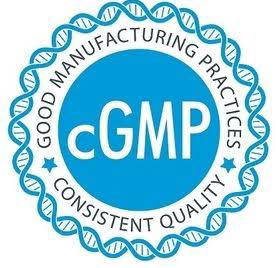Preamble:
Product filter validation plays a critical role in the pharmaceutical industry, where the quality, safety, and efficacy of medications are of utmost importance.
Filters are employed at various stages of drug manufacturing and processing to remove impurities, contaminants, and particulate matter. This article aims to provide a comprehensive overview of product filter validation, addressing the questions of what, why, which, when, where, and how.
1. What is Product Filter Validation?
Product filter validation involves a systematic approach to evaluating the performance and reliability of filters used in pharmaceutical manufacturing.
It includes verifying the ability of filters to remove particulate matter, microorganisms, and other impurities, while ensuring that they do not adversely affect the drug product. Validation encompasses various tests, assessments, and documentation to establish the suitability of filters for their intended use.
2. Why is Product Filter Validation Important?
A) Patient Safety:
Product filter validation is crucial for ensuring patient safety by minimizing the risk of contamination, impurities or substandard quality in medications.
B) Regulatory Compliance: Regulatory bodies, such as the FDA in the United States or the EMA in the European Union, mandate product filter validation to ensure compliance with quality standards and regulatory guidelines.
C) Process Optimization:
Validation helps optimize filtration processes by identifying the most appropriate filters, their operational parameters, and maintenance procedures. This optimization leads to improved efficiency, reduced costs, and increased productivity.
3. Which Filters Require Validation?
Different types of filters used in the pharmaceutical industry require validation, depending on their specific applications:
A) Membrane Filters:
These filters, made of materials like cellulose, polyvinylidene fluoride (PVDF), or polyethersulfone (PES), are commonly used for sterilization, clarification, or particle removal.
B) Depth Filters:
These filters, composed of fibrous materials like cellulose, glass fiber or diatomaceous earth are effective in capturing particles throughout their depth. They are often used for pre-filtration or clarification purposes.
C) Sterile Filters:
These filters are designed to provide sterile filtration by removing microorganisms from the drug product. They are essential for maintaining the sterility of injectable formulations.
Product filter validation should be performed during the development and manufacturing stages, before filters are used in routine production.
Validation is also necessary when changes are made to the filtration process or when new filters are introduced. Periodic revalidation is recommended to ensure ongoing filter performance and compliance with regulatory requirements.
5. Where Does Product Filter Validation Take Place?
Product filter validation is typically conducted within pharmaceutical manufacturing facilities equipped with dedicated testing laboratories. These facilities are designed to meet the specific requirements of validation, including controlled environments, suitable equipment, and trained personnel. Alternatively, manufacturers may collaborate with external contract testing laboratories that specialize in pharmaceutical filter validation.
6. How is Product Filter Validation Performed?
Product filter validation involves a series of tests and evaluations which may include:
A) Integrity Testing:
This verifies the filter's ability to retain particles or microorganisms by assessing parameters such as bubble point, diffusion, or pressure hold tests. These tests determine the integrity of the filter and its resistance to failure or bypass.
B) Extractables and Leachables Testing:
This assesses the potential migration of filter materials or chemicals into the drug product, ensuring that there are no adverse effects on product quality, safety, or efficacy.
C) Compatibility Testing:
This evaluates the compatibility between the filter and the drug formulation to avoid interactions that could lead to degradation or compromised drug performance.
D) Microbial Retention Testing:
This involves challenging filters with known microorganisms to confirm their ability to effectively remove or retain microorganisms, ensuring the sterility of the drug product.
E) Performance Monitoring:
Filters are regularly monitored during routine production to detect any deviations, failures, or changes in performance. This monitoring helps ensure consistent and reliable filtration throughout the manufacturing process.
Inference:
Product filter validation is a vital process in the pharmaceutical industry to ensure the safety, efficacy, and quality of medications. By conducting comprehensive and systematic validation, pharmaceutical manufacturers can meet regulatory requirements,optimize their processes, and prioritize patient safety.
Product filter validation involves a range of tests and evaluations, including integrity testing, extractables and leachables testing, compatibility testing, microbial retention testing, and performance monitoring.
Overall, product filter validation is a comprehensive and rigorous process that ensures the quality and safety of pharmaceutical products. By conducting validation activities, pharmaceutical manufacturers can comply with regulatory standards, optimize their manufacturing processes, and ultimately provide patients with medications that are free from impurities and contaminants.
About the Author:
Dhansukh Viradiya is a highly accomplished expert in the pharmaceutical and biopharmaceutical industries. With over 10 years of experience in the field, he has gained comprehensive knowledge and expertise in various areas, including Process Validation, Cleaning Validation, Quality Management System, In-process quality assurance, Qualification etc.
Mr. Dhansukh holds a Master's degree in Pharmacy from a renowned University, where he specialized in Quality Assurance.
As a thought leader, Mr. Dhansukh has published numerous articles and white papers on various topics related to pharmaceutical and biopharmaceutical industries. His research work focuses on emerging trends, current regulatory expectations, advancements in technology, personalized medicine, and the intersection of healthcare and technology.
With his passion for improving patient care and dedication to advancing the field, Dhansukh Viradiya continues to make significant contributions to the pharmaceutical and biopharmaceutical industries. His insights and expertise make him a valuable resource in understanding the dynamic landscape of these sectors and their impact on global healthcare.
Disclaimer:
The author's biography is provided for informational purposes only and does not imply any endorsement or affiliation with the article or its content.
Amazon Kindle eBook free
Please click on below link 💌














No comments:
Post a Comment